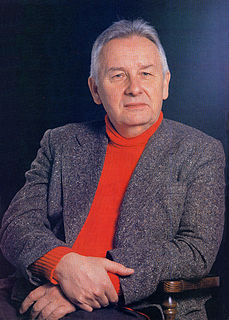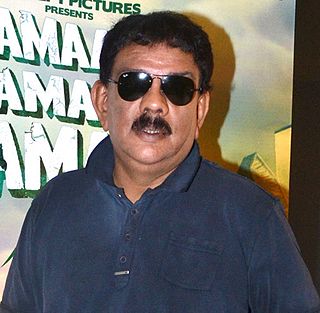A Quote by Asin
Indians can identify with the Indian sensibilities, and rather than taking something from foreign films, it is always good to make a movie which has been enjoyed by a certain audience or in a certain part of India and make it available to a larger audience.
Related Quotes
Plays have a celebratory nature that no other form has. Theater always meant celebration, a birthday, a reward for good grades. I felt at home in a theater. I loved being part of an audience. All the rules - the audience has to see the play on a certain date at a certain time in a certain place in a certain seat.
I make comedies and I always try... I don't try but I allow to have at least 5% of the jokes or have some jokes that I know will be understood by only about 5% of the audience. It's that guy in the corner who gets it and laughs. But he has to have his jokes too. That's part of my audience. Part of my audience is the people who will only get certain things.
I do not choose my listeners. What I mean is, I never write for my listeners. I think about my audience, but I am not writing for them. I have something to tell them, but the audience must also put a certain effort into it. But I never wrote for an audience and never will write for one, because you have to give the listener something and he has to make an effort in order to understand certain things.
The most stressful and difficult part of steering a large movie is that you are taking on the responsibility of communicating with a very wide audience. You can't ever hide behind the notion of, 'Okay, they just don't get it,' or, 'Certain people just don't get it.' You have to be mindful of the size of your audience, and you have to communicate in a way that lets them in.
I don't think all films should necessarily look like they do on digital video. I think it cheats the audience, at some point. If you try to make an epic and you shoot it digitally, that doesn't make much sense. I think there's a certain kind of film that could be a "digital film." But it shouldn't be interchangeable with other films. It should be something more than just a capture medium. It should be a different form altogether, something new.
If you test Iron Man and that audience doesn't respond well, you can be damn sure that there is something wrong with the movie that you have to address. Because they're expecting a certain amount of action, right? They want a hero. There are certain things that have to be compatible with the way the audience is thinking about it. If you take some other film, like No Country for Old Men, you can end up with all kinds of crazy reactions.
There aren't a lot of alternative roles for Indian actors. I think we've fallen short of portraying Indians in the media. We don't need to make another Dances With Wolves, because it's not an Indian movie. When Indians portray themselves, then we have a different perspective. I've been asked about making period pieces but I've never read one that wasn't about guilt, and I'm not trying to make a guilt film.




































